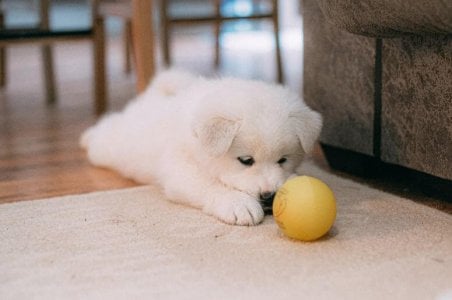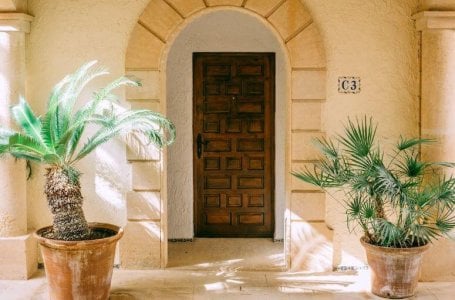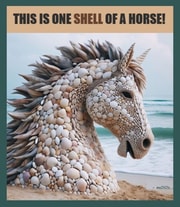Beware, pet owners! This common garden plant is deadly
- Replies 3
Whether you’re a pet owner or not, it’s heartbreaking to think of our beloved little furry friends or any animal in pain.
That’s why our hearts go out to Katrina and her family, who recently lost their puppy, Margot, due to a plant that’s commonly found in home gardens.
Queensland local Katrina Dawson and her family had left their two dogs, Hazel and Margot, outside in their fenced yard, unaware of the hidden dangers lurking in the seemingly safe environment.
She shared that when their dogs went back inside, Margot was looking a ‘little bit lethargic’. After that, Margot became increasingly ill, prompting the family to take her to the emergency vet.
Unfortunately, Margot passed away a few days later.
The vet also shared that Margot ingested a seed from a sago palm the family had in their garden, and this is what led to Margot’s death.
Now, Ms Dawson is urging pet owners everywhere to take a closer look at their gardens in the hopes of saving other pet’s lives.
Sago palm plants are extremely toxic to animals and can cause liver failure. Blue-green algae, mushrooms, and the ‘yesterday, today, tomorrow’ plant are also common toxic garden plants that pet owners should be aware of.
‘I don’t think a lot of people know anything about it, I certainly didn’t,’ Ms Dawson explained. She added that she knew about toxic plants, and knew not to feed her dogs grapes or chocolate, and to avoid ticks, snakes, and everything in between.
‘I thought I was pretty educated,’ she shared.
‘But I didn’t realise how bad this particular plant is and we have four of them in our fenced-in yard. That’s what got me,’ she added.
Ms Dawson also admitted that since she had a safe fenced-in yard, she expected her animals to be safe.
‘Puppies chew everything, you can’t do anything about it,’ she shared.
Among the warning signs, Ms Dawson said Margot started throwing up a few hours after going back inside. ‘Later on, it just got worse, she just kept vomiting and was so tired,’ she said.
She admitted that after the incident, Margot only wanted to keep sleeping. ‘For a puppy, that’s a big red flag,’ she claimed.
According to Ms Dawson, she brought Margot home on December 1 as a friend for Hazel, her 3-year-old dog, and claimed she was very loving and always had to be touching Ms Dawson or Hazel in some way.
‘She was beautiful,’ she shared.
Dr Sureiyan Hardjo, a veterinarian, said that sago palms are one of the main plants that pet owners should watch out for.
‘It’s one of those things that we always ask: “Do you have any plants that look like palms?”,’ He said. Sago palms, also called cycad plants, are extremely toxic to dogs. If you see your pet chewing on a seed, bring them to the vet immediately.
He also shared that half of their patients come in due to having some sort of gastrointestinal issue, so being aware of what your pets are chewing on is important.
Some symptoms to watch out for are:
Other garden plants that are toxic to dogs and cats include:

Have you ever encountered a similar situation? What happened and what did you do?
That’s why our hearts go out to Katrina and her family, who recently lost their puppy, Margot, due to a plant that’s commonly found in home gardens.
Queensland local Katrina Dawson and her family had left their two dogs, Hazel and Margot, outside in their fenced yard, unaware of the hidden dangers lurking in the seemingly safe environment.
She shared that when their dogs went back inside, Margot was looking a ‘little bit lethargic’. After that, Margot became increasingly ill, prompting the family to take her to the emergency vet.
Unfortunately, Margot passed away a few days later.
The vet also shared that Margot ingested a seed from a sago palm the family had in their garden, and this is what led to Margot’s death.
Now, Ms Dawson is urging pet owners everywhere to take a closer look at their gardens in the hopes of saving other pet’s lives.
Sago palm plants are extremely toxic to animals and can cause liver failure. Blue-green algae, mushrooms, and the ‘yesterday, today, tomorrow’ plant are also common toxic garden plants that pet owners should be aware of.
‘I don’t think a lot of people know anything about it, I certainly didn’t,’ Ms Dawson explained. She added that she knew about toxic plants, and knew not to feed her dogs grapes or chocolate, and to avoid ticks, snakes, and everything in between.
‘I thought I was pretty educated,’ she shared.
‘But I didn’t realise how bad this particular plant is and we have four of them in our fenced-in yard. That’s what got me,’ she added.
Ms Dawson also admitted that since she had a safe fenced-in yard, she expected her animals to be safe.
‘Puppies chew everything, you can’t do anything about it,’ she shared.
Among the warning signs, Ms Dawson said Margot started throwing up a few hours after going back inside. ‘Later on, it just got worse, she just kept vomiting and was so tired,’ she said.
She admitted that after the incident, Margot only wanted to keep sleeping. ‘For a puppy, that’s a big red flag,’ she claimed.
According to Ms Dawson, she brought Margot home on December 1 as a friend for Hazel, her 3-year-old dog, and claimed she was very loving and always had to be touching Ms Dawson or Hazel in some way.
‘She was beautiful,’ she shared.
Dr Sureiyan Hardjo, a veterinarian, said that sago palms are one of the main plants that pet owners should watch out for.
‘It’s one of those things that we always ask: “Do you have any plants that look like palms?”,’ He said. Sago palms, also called cycad plants, are extremely toxic to dogs. If you see your pet chewing on a seed, bring them to the vet immediately.
He also shared that half of their patients come in due to having some sort of gastrointestinal issue, so being aware of what your pets are chewing on is important.
Some symptoms to watch out for are:
- Vomiting
- Bloody stool
- Jaundice
- Increased thirst
- Bruising
Other garden plants that are toxic to dogs and cats include:
- Daffodils: When the seed is ingested, it can cause vomiting, diarrhoea, abdominal pain, heart rhythm abnormalities and respiratory depression.
- Tulip and Hyacinth: All parts of the plant are toxic, and can cause profuse drooling, vomiting and diarrhoea — leading to dehydration and additional problems.
- Lilies: Some lilies (Peace, Peruvian and Calla) contain oxalate crystals, which are substances that cause kidney stones. True lilies (Tiger, Day, Asiatic, Easter and Japanese Show lilies) can be fatal. What makes them toxic is unknown, but ingesting any part of the plant can cause your pet severe kidney damage and failure in 36 to 72 hours.
- Chrysanthemum (including Daisies): Ingestion of this plant irritates the gastrointestinal tract and affects your pet’s nervous system. Signs of toxicity include vomiting, diarrhoea, increased salivation, and incoordination.
- Rhododendron: Signs of toxicity include heart rate and blood pressure changes, weakness, tremors, seizures, paralysis, and trouble breathing.
Key Takeaways
- A Queenslander’s puppy died from eating a toxic sago palm plant.
- Sago palms are extremely toxic to animals and can cause liver failure.
- Blue-green algae, mushrooms, and the ‘yesterday, today, and tomorrow’ plant are also common toxic garden plants that pet owners should be aware of.
- Vets warn that animals ingesting something they shouldn’t is the cause of around half of their cases.












